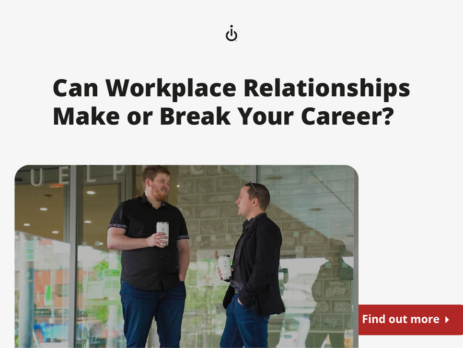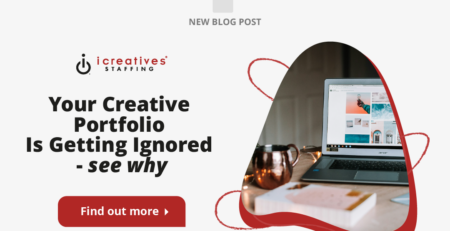Can Workplace Relationships Make or Break Your Career?
Workplace relationships are the invisible threads that weave together the fabric of every successful organization. Whether it’s the camaraderie you share with colleagues, the mentorship you receive from a supervisor, or the professional rapport you build with clients, these connections can significantly influence your career trajectory. While hard skills and technical expertise are crucial, the ability to navigate interpersonal dynamics often distinguishes those who thrive from those who merely survive.
Positive workplace relationships foster collaboration, enhance productivity, and create a supportive environment where individuals can grow. They open doors to new opportunities, provide access to valuable resources, and help you weather the inevitable challenges of professional life. On the other hand, strained or toxic relationships can lead to miscommunication, decreased morale, and even career stagnation or derailment.
The impact of workplace relationships extends beyond immediate job performance. They can influence promotions, project assignments, and your overall reputation within an organization. A strong professional network can serve as a safety net during times of change, while negative interactions can leave lasting scars that hinder future prospects.
In today’s increasingly collaborative and remote work environments, the ability to build and maintain healthy workplace relationships is more important than ever. It requires emotional intelligence, empathy, and a willingness to invest in meaningful connections. Understanding the nuances of workplace dynamics can empower you to make strategic decisions that benefit both your career and your organization.
This article delves deep into the ways workplace relationships can make or break your career. We’ll explore the most frequently asked questions, provide actionable insights, and share strategies for cultivating positive connections while avoiding common pitfalls. Whether you’re a seasoned professional or just starting out, mastering the art of workplace relationships is key to long-term success.
Most Asked Questions About Workplace Relationships and Career Impact
- How can positive workplace relationships advance your career?
- What are the risks of negative workplace relationships?
- What strategies can help in building strong professional relationships?
- How do you navigate office politics without harming your reputation?
- How can you foster workplace relationships in a remote or hybrid environment?

How can positive workplace relationships advance your career?
Positive workplace relationships are a cornerstone of career advancement. They foster trust, collaboration, and a sense of belonging, all of which contribute to a thriving professional environment. Here’s how these relationships can propel your career forward:
- Enhanced Collaboration: Strong relationships encourage open communication and teamwork, leading to more successful projects and shared achievements.
- Access to Opportunities: Colleagues and mentors often recommend those they trust for promotions, key projects, or professional development opportunities.
- Support Network: Positive connections provide emotional support and practical advice during challenging times, helping you navigate obstacles more effectively.
- Increased Visibility: Good relationships with influential colleagues or leaders can raise your profile within the organization, making you more likely to be noticed for your contributions.
- Knowledge Sharing: A healthy network facilitates the exchange of ideas, resources, and feedback, accelerating your learning and growth.
Consider the following table, which highlights how positive relationships can impact various aspects of your career:
| Career Aspect | Impact of Positive Relationships |
| Promotion | Increases likelihood through advocacy and recommendations |
| Project Assignments | Leads to involvement in high-profile or desirable projects |
| Learning & Development | Facilitates mentorship and access to training resources |
| Job Security | Creates allies who can support you during organizational changes |
| Reputation | Builds a positive image and trust within the company |
Building these relationships doesn’t happen overnight. It requires consistent effort, active listening, and a genuine interest in others’ success. Simple acts like offering help, recognizing achievements, or sharing credit can go a long way.
Mentorship is another powerful tool. Seeking advice and guidance from experienced colleagues not only accelerates your growth but also demonstrates your commitment to learning and improvement.
Positive relationships also foster a culture of feedback, where constructive criticism is welcomed and used as a tool for development rather than a source of conflict.
For creative professionals, building a strong network can open doors to dream projects and collaborations. Discover tips to kickstart your professional profile in our guide: Top Secrets to Kickstart Your Professional Profile and Land Dream Projects in Graphic Design.
Ultimately, positive workplace relationships are a catalyst for personal and professional growth, making them an essential ingredient for career success.
What are the risks of negative workplace relationships?
Negative workplace relationships can be detrimental to both your career and your well-being. They often manifest as conflict, mistrust, or even outright hostility, creating a toxic environment that stifles growth and innovation.
One of the most immediate risks is the impact on job performance. When communication breaks down or collaboration becomes strained, projects can suffer, deadlines may be missed, and the quality of work can decline.
Negative relationships also affect mental health. Chronic stress, anxiety, and decreased job satisfaction are common outcomes, leading to burnout or even the decision to leave an otherwise promising position.
Career progression can be hindered as well. A poor reputation, whether justified or not, can limit your access to promotions, desirable assignments, or professional development opportunities.
In extreme cases, negative relationships can escalate to workplace bullying or harassment, which may require intervention from HR and could result in disciplinary action or legal consequences.
Here are some common risks associated with negative workplace relationships:
- Decreased productivity and morale
- Increased absenteeism and turnover
- Damaged professional reputation
- Missed opportunities for advancement
- Legal or ethical issues
Addressing these issues early is crucial. Open communication, conflict resolution skills, and a willingness to seek mediation can help repair damaged relationships before they become irreparable.
Organizations also play a role in fostering a positive culture. Leaders should model respectful behavior and provide training on effective communication and conflict management.
In summary, while negative relationships can derail your career, proactive steps and organizational support can help mitigate their impact and restore a positive work environment.
What strategies can help in building strong professional relationships?
Building strong professional relationships requires a blend of interpersonal skills, strategic thinking, and genuine engagement. Here are ten strategies to help you cultivate meaningful connections at work:
- Be Authentic: Approach interactions with honesty and integrity. People value sincerity and are more likely to trust you.
- Practice Active Listening: Give your full attention, ask thoughtful questions, and show empathy in conversations.
- Offer Help: Be proactive in supporting colleagues, whether it’s sharing knowledge, lending a hand, or celebrating their successes.
- Communicate Clearly: Articulate your ideas and expectations, and be open to feedback.
- Show Appreciation: Recognize others’ contributions and express gratitude regularly.
- Network Beyond Your Team: Build relationships across departments and hierarchies to broaden your perspective and influence.
- Invest in Mentorship: Seek mentors and offer to mentor others, fostering mutual growth and learning.
- Respect Boundaries: Understand and honor personal and professional boundaries to build trust.
- Stay Positive: Maintain a constructive attitude, even during challenges, to inspire confidence and resilience.
- Follow Up: Keep in touch with colleagues, especially after collaborative projects or significant milestones.
These strategies are not one-size-fits-all. Adapt them to fit your workplace culture and individual personalities. Consistency and patience are key; strong relationships develop over time through shared experiences and mutual respect.
Avoid common pitfalls such as gossip, favoritism, or overstepping boundaries. These behaviors can erode trust and damage your reputation.
Leverage technology to stay connected, especially in hybrid or remote settings. Regular check-ins, video calls, and collaborative tools can help bridge the gap.
Remember, every interaction is an opportunity to build rapport. Small gestures, like remembering birthdays or congratulating colleagues on achievements, can leave a lasting impression.
For businesses seeking to build creative, collaborative teams, hiring the right talent is crucial. Learn how remote illustrators can boost your brand in our article: Discover the Benefits of Hiring Remote Illustrators: Boost Your Brand’s Image.
In essence, strong professional relationships are built on trust, respect, and a commitment to mutual success.
How do you navigate office politics without harming your reputation?
Navigating office politics is an inevitable part of professional life. While the term often carries negative connotations, understanding and managing workplace dynamics can actually enhance your career—if approached ethically.
1. Stay Professional: Always act with integrity, regardless of the situation. Avoid gossip, backstabbing, or manipulative tactics that can damage your reputation.
2. Build Alliances: Cultivate relationships with colleagues across different levels and departments. This network can provide support and diverse perspectives.
3. Observe and Learn: Pay attention to the informal power structures and decision-making processes within your organization. Understanding these dynamics helps you anticipate challenges and opportunities.
4. Communicate Transparently: Be clear, honest, and consistent in your communication. Transparency builds trust and reduces misunderstandings.
5. Focus on Solutions: When conflicts arise, prioritize finding constructive solutions rather than assigning blame. This approach positions you as a problem-solver and team player.
6. Set Boundaries: Know when to engage and when to step back. Not every political battle is worth fighting, and sometimes neutrality is the best course.
7. Seek Mentorship: A trusted mentor can provide valuable guidance on navigating complex situations and avoiding common pitfalls.
8. Document Interactions: For sensitive matters, keep a record of key conversations and decisions to protect yourself if disputes arise.
9. Uphold Company Values: Align your actions with your organization’s mission and values. This consistency reinforces your credibility.
10. Reflect and Adapt: Regularly assess your approach and be willing to adjust your strategies as needed.
Navigating office politics ethically requires self-awareness, diplomacy, and a commitment to fairness. By focusing on positive influence and collaboration, you can protect your reputation while advancing your career.
How can you foster workplace relationships in a remote or hybrid environment?
The rise of remote and hybrid work has transformed how professionals build and maintain workplace relationships. While face-to-face interactions are limited, there are still effective ways to foster strong connections:
- Regular Check-ins: Schedule consistent virtual meetings to stay connected with your team and discuss both work and non-work topics.
- Leverage Collaboration Tools: Use platforms like Slack, Microsoft Teams, or Zoom to facilitate communication and teamwork.
- Virtual Social Events: Organize online gatherings, such as coffee breaks or game sessions, to build camaraderie outside of work tasks.
- Be Proactive: Reach out to colleagues for one-on-one conversations, feedback, or brainstorming sessions.
- Share Achievements: Celebrate milestones and recognize contributions in team channels or meetings.
- Encourage Inclusivity: Make an effort to include remote colleagues in discussions and decision-making processes.
- Set Clear Expectations: Clarify roles, responsibilities, and communication norms to avoid misunderstandings.
- Provide Support: Offer help and resources to colleagues facing challenges, whether personal or professional.
- Respect Time Zones: Be mindful of colleagues’ working hours and schedule meetings accordingly.
- Invest in Onboarding: Ensure new remote employees receive a warm welcome and the tools they need to connect with the team.
The following table summarizes key strategies for fostering remote relationships:
| Strategy | Benefit |
| Regular Check-ins | Maintains communication and team cohesion |
| Virtual Social Events | Builds camaraderie and trust |
| Proactive Outreach | Strengthens individual connections |
| Inclusivity | Ensures everyone feels valued and heard |
Remote relationships require intentional effort, but the rewards are well worth it. Strong virtual connections can drive collaboration, boost morale, and create a sense of community—even from a distance.
For more on building effective remote teams, read our article: How to Attract and Retain Top Animation Talent in Your Team.
Conclusion
Workplace relationships are a powerful force that can shape your career in profound ways. Positive connections open doors, foster collaboration, and create a supportive environment for growth. On the other hand, negative relationships can hinder progress, damage reputations, and impact well-being.
The strategies for building strong professional relationships are rooted in authenticity, active listening, and mutual respect. By investing in these skills, you can navigate even the most complex workplace dynamics with confidence.
Navigating office politics requires ethical behavior, diplomacy, and a focus on constructive solutions. By aligning your actions with organizational values and maintaining professionalism, you can protect your reputation while advancing your goals.
The remote work revolution has introduced new challenges, but also new opportunities for connection. By leveraging technology and being intentional in your outreach, you can build meaningful relationships regardless of physical distance.
Ultimately, mastering workplace relationships is not just about career advancement—it’s about creating a more fulfilling, collaborative, and resilient professional life. Whether in-person or remote, the quality of your connections will continue to play a pivotal role in your success.
Invest in your workplace relationships today, and you’ll be laying the foundation for a rewarding and impactful career journey.
In today’s competitive market, finding the right creative and marketing expert can be a challenge. But with icreatives, you’re in experienced hands. With 37 years in staffing and a track record of matching more than 10,000 employees to over 1,000 companies worldwide, we know how to connect you with the best. Plus, you only pay if you hire-there’s no risk, only results. Ready to find your perfect creative or marketing expert? HIRE WITH ICREATIVES today!












